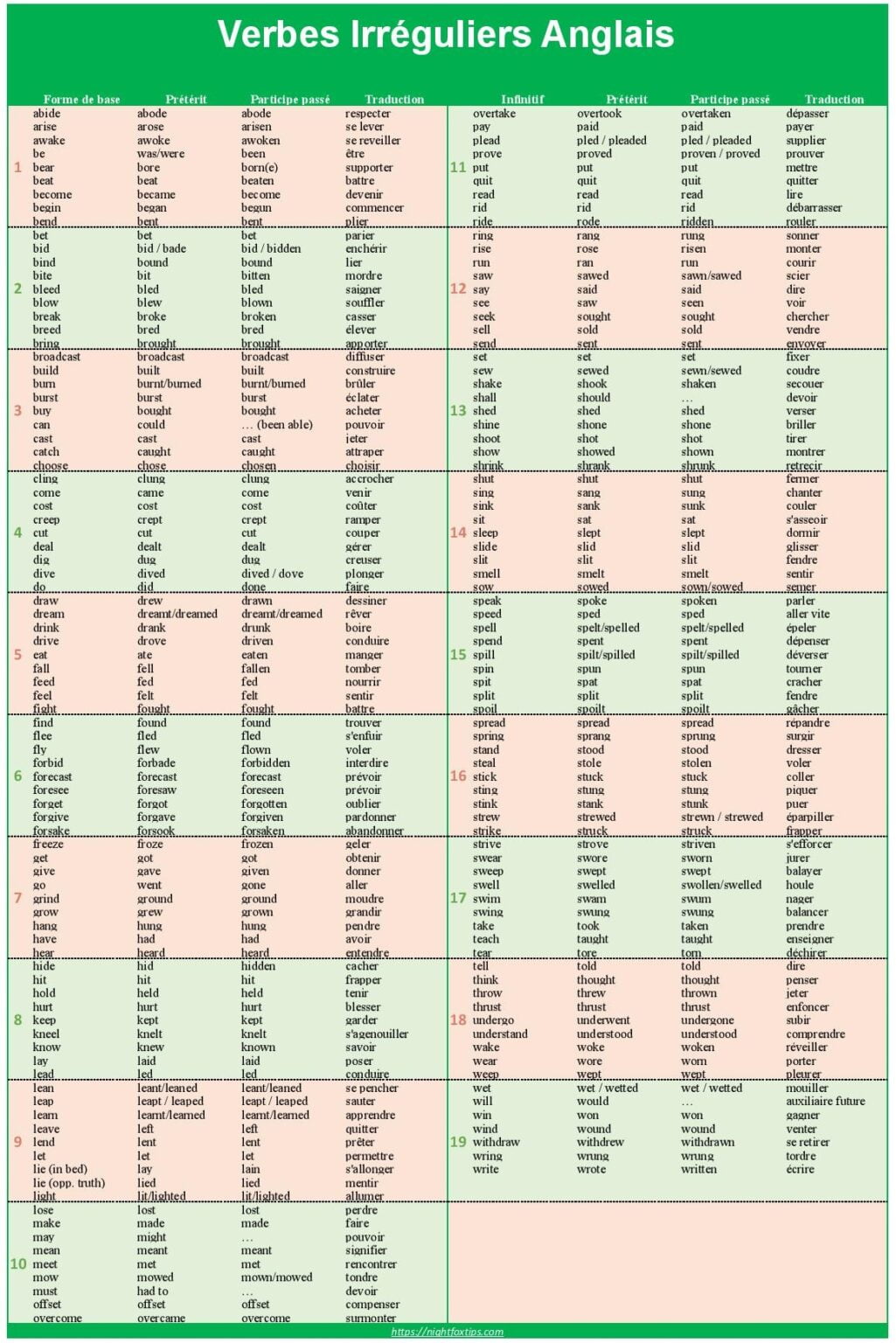Have you ever felt like English verbs are a tangled web, a confusing maze with no clear path? You’re not alone! Many learners struggle with the intricacies of regular and irregular verbs. But fear not, because this comprehensive guide will illuminate the path to understanding and confidently using verbs in English.

Image: www.hotzxgirl.com
Imagine yourself confidently holding a conversation with a native English speaker, effortlessly using verbs in your sentences. This article will equip you with the knowledge to break down the mystery of regular and irregular verbs, paving the way for you to speak and write English with confidence.
Navigating the Verb Landscape: Regular vs. Irregular
In the colorful tapestry of English grammar, verbs are the threads that weave together meaning and action. They tell us what someone or something is doing, has done, or will do. At the heart of this process lie two key groups: regular and irregular verbs.
Regular verbs are the predictable, the reliable companions in our grammatical journey. They follow consistent patterns when forming their past tense and past participle. We simply add “-ed” to the base form to create these variations. For example, “walk” becomes “walked” and “played” becomes “played.”
Irregular verbs, on the other hand, are the rebels, the free spirits of the English language. They don’t follow the predictable “-ed” rule. Instead, they have unique forms that we need to memorize. Think of “go” transforming into “went” and “gone” – a captivating journey through the language!
Unraveling the Mysteries of Irregular Verbs
One of the most common questions posed by English learners is: “How can I remember all these irregular verbs?” While memorization is indeed essential, there are strategies that can make this journey more enjoyable and effective:
-
The Power of Patterns: While irregular verbs don’t follow a universal rule, they often appear in clusters with similar patterns. For example, “swim-swam-swum,” “begin-began-begun,” “drink-drank-drunk” all form their past tense and past participle in a similar fashion. Recognizing these patterns can aid in recall.
-
Mnemonics and Games: Don’t underestimate the power of fun! Create your own memory tricks (mnemonics) to remember specific irregular verb forms. You could use rhymes, images, or create flashcards. There are countless apps and online resources for playing verb conjugation games to make learning entertaining and interactive.
Mastering the Past Tense: A Dive into the Past Simple
When we’re talking about actions that happened in the past, we often employ the past simple tense. Here’s where our knowledge of regular and irregular verbs comes into play.
Regular verbs: To form the past simple of a regular verb, we simply add “-ed” to the base form.
- Example: I walked to the store yesterday.
- Example: She played the piano beautifully.
Irregular verbs: These verbs have their own unique past simple forms that we need to commit to memory.
- Example: I went to the beach last weekend.
- Example: He saw the movie last night.

Image: nightfoxtips.com
Conquering the Past Participle: Perfecting the Past Perfect
The past participle is a versatile form of a verb, often used in conjunction with auxiliary verbs to create compound tenses. Let’s explore its usage with a focus on the past perfect tense.
The past perfect tense is used to describe actions that happened before another action in the past. The past participle plays a vital role in constructing this tense.
Regular verbs: The past participle of regular verbs is formed by adding “-ed” to the base form.
- Example: I had walked for miles before I finally reached the summit.
- Example: She had played the piano for hours before she decided to take a break.
Irregular verbs: The past participle forms of irregular verbs are unique and must be memorized.
- Example: I had gone to the beach last week.
- Example: She had seen that movie several times before.
Finding Your Voice: Using Verbs with Confidence
As you venture further into the English language, you’ll find that understanding the nuances of regular and irregular verbs is crucial to expressing yourself with precision and clarity.
Here are some practical tips to enhance your verb mastery:
-
Reading: Immerse yourself in books, articles, and online content. Notice how verbs are used in different contexts.
-
Writing: Practice writing sentences and paragraphs using verbs, consciously incorporating both regular and irregular forms.
-
Conversation: Engage in conversations with native speakers or fellow learners. Using verbs in spontaneous conversation will reinforce your learning.
-
Resources: Utilize online resources like websites, apps, and dictionaries that provide extensive lists of regular and irregular verbs, complete with conjugation charts.
Verbos Regulares E Irregulares En Inglés Pdf
Embracing the Journey of Language Learning
Mastering English verbs, particularly irregular ones, requires dedication and a touch of creative thinking. Embrace this journey of learning, and you’ll soon discover that the intricacies of verbs become less daunting and more rewarding with each step you take.
Remember, understanding and applying the concepts of regular and irregular verbs will empower you to communicate effectively and confidently in the English language. So, keep exploring, keep practicing, and savor the joy of learning!






